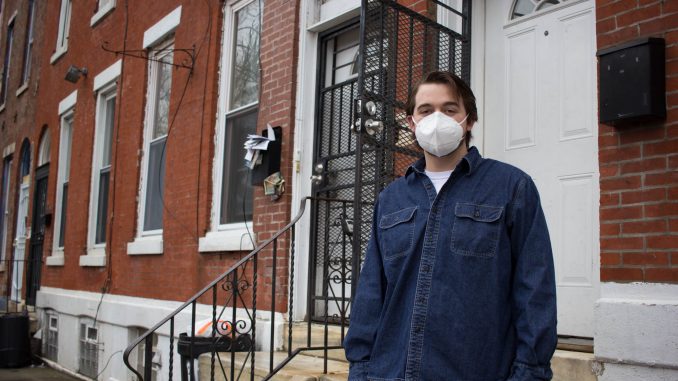
In past spring breaks, Anthony Gosch traveled to Florida, Spain and the Dominican Republic, visiting family and taking time off from classes.
But because of travel restrictions due to the COVID-19 pandemic and the cancellation of spring break, Gosch, a senior marketing major, is spending his entire semester in his apartment.
Temple University implemented two Wellness Days on Feb. 23 and March 24 without classes after spring break, originally scheduled for March 1 through March 7, was canceled on Oct. 26, 2020. The cancellation was to prevent students from traveling and mitigate the possibility of increased cases of COVID-19 among students. While students and faculty feel like two Wellness Days aren’t the same relief as spring break, they understand why the university is not holding spring break during the COVID-19 pandemic.
Last year’s spring break led to multiple positive cases of COVID-19 among students after some traveled nationally and internationally, according to the announcement.
Gosch spent the first half of his Wellness Day running errands, going out to lunch and relaxing around his house watching movies. But by nighttime, he was back to focusing on assignments for his classes, he said.
“I kept reiterating to myself, ‘This is my day off, I don’t have classes,’” Gosch said. “I kind of prepared ahead of time and used it as a day for errands and went grocery shopping in the city.”
Because R. B. Drennan, a risk management and insurance professor, doesn’t teach on Tuesdays, the Wellness Day on Feb. 23 felt normal. He spent his time preparing for his Wednesday classes, he said.
He looks forward to the next Wellness Day on a Wednesday because it will allow him time to rest and catch up on grading and give him a day off of teaching, he added.
“It will be sort of a mini spring break,” Drennan said.
Cara Fisher understands why spring break is canceled, but for her, the two Wellness Days are not enough time for her to relax and recharge for the rest of the semester.
“[Temple doesn’t] want the spread of COVID to be any worse than it already is, so I understand that we’re not getting a week for those reasons,” said Fisher, a sophomore media studies and production major. “I feel like it doesn’t take the place of a spring break, two days is not enough.”
Fisher used the Feb. 23 Wellness Day to grocery shop with her mom and go to the bank. She attempted to start homework later in the day and got some of her assignments done, which alleviated some of her stress, but not as much as she had hoped, she said.
Leanne Spiegle, a senior journalism major, agrees canceling spring break was the right decision, but she thinks changing when the Wellness Days are scheduled would make a big difference.
“If the Wellness Days were on Monday or Friday, it would be like having a long weekend, it’s kind of random to have them in the middle of the week,” Spiegle said. “A lot of students don’t have class on Tuesday or Wednesday and might have classes on different days, so a lot of students aren’t being affected by the Wellness Days at all.”
The University of Pennsylvania implemented a two-day spring break on March 10 and 11 in addition to three days off of classes and assignments on Feb. 12, March 30 and April 12 after canceling the original break, according to an announcement from Penn President Amy Gutmann and Provost Wendell Pritchett.
Drexel University’s spring break is from March 27 to April 4, but the university recommends students refrain from traveling and don’t attend parties or indoor gatherings, according to an announcement from Janet Cruz, director of Drexel’s Student Health Services, and Marla Gold, director of Drexel’s Return Oversight Committee.
Sinh Taylor, a junior English major, is disappointed spring break is canceled because they don’t travel, but instead use it to recharge and see family, they said.
“There is this misconception that everyone goes to Florida or down the shore for spring break, I know a lot of people, myself included, spend spring break just with their families they don’t really get to see,” Taylor said. “It’s a break, it’s time for you to just chill and not worry about school for a couple of days.”
John Deckop, a human resources management professor, prefers a spring break rather than Wellness Days because it allows faculty members to catch up on grading and research, he said.
Deckop felt the Wellness Day was too early and would rather have it in two weeks, when there will be more grading to catch up on, he said.
“After spring break, we come back refreshed and come back better teachers and better students,” Deckop added.



Be the first to comment